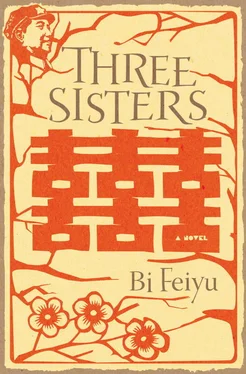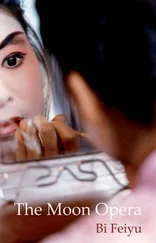In the brief span of time before they fell asleep, the students lay in bed in the dark, full of energy. Their minds, bright and shiny as if washed clean, became sensitive, sharp, and discerning, capable of philosophical research or poetry composition. The students became transient philosophers and momentary poets. Their tongues sharpened, and even the shiest and least articulate among them seemed to possess a supercharged mouth that emitted the blue flame of wisdom. They chattered away, talking about everything—ancient and modern, domestic and foreign, trivial and outdated—covering interpersonal relationships, the future, their resentments and rancor, their happiness, and anything they could think of.
Of course, everything was twisted, colored by pubescent exaggeration, passion, and sorrow. Lying calmly under their blankets, they spoke with naïve sophistication interspersed with mature recklessness. In fact, they were honest, exposed, and transparent, convinced that they knew everything, that whoever considered them naïve would suffer when the time came. Understandably, their conversations tended to center on the school and their classes, young Zhang and young Li in their classrooms, Mr. Zhang and Miss Li among the teachers, Old Zhang and Little Li at the eatery by the campus gate. With their eyes shut, the students appeared to rest, but their faces were no less expressive than when their eyes were wide open and were often even more colorful and intense. Since the door was bolted, their conversations assumed private, secretive airs. But that was an illusion. Each room had eight mouths, and the following morning, eight would become sixteen, sixteen would become thirty-two, and in no time the secrets would be public knowledge. But this bothered no one.
If the conversations got really animated, the girls would open their eyes and look into the darkness, which had no effect on their cleverness. Their voices would grow louder with uproarious talk or wild laughter. At such moments, a shout would rise up from the teacher on night duty downstairs: “Who’s talking up there?”
Sometimes the general became specific: “Room 323. Do you hear me? Room 323.” The disturbance would die down again as everyone shut her eyes, savoring the best part of the conversation with happy, contented smiles.
Yuyang lived in 412, a standard room with five girls from the cities, plus Pang Fenghua, Wang Yuyang, and Kong Zhaodi. The most active and conspicuous girl in the room was Zhao Shanshan, who played the violin and the piano, was the class’s literary mainstay, and, predictably, was on its arts and literature committee.
A favorite of the teachers, she was outstanding in every respect except for her predilection for giving her classmates nicknames, starting with the boys. She had a gift for giving names that were right on target in mocking the subject’s unique features. The name sometimes sounded contrived at first, but the more one mulled it over, the more one had to agree that it was the perfect nickname. She said that one of the boys was like a camel except for his lack of fur. Sure enough, many of his movements did resemble a camel. When the girls ran into Camel on the street, he’d nod and they’d smile knowingly. He does, he looks like a camel. In this wondrous world, seeing is believing.
Her victims included Mantis, Hound, Frog, and Toad. As for so-and-so, he definitely resembled a rooster, but only if you looked at his profile when he thrust out his neck, alert and jerky. Of course he was a rooster. The boys in class were unaware that she’d turned them into zoo animals.
After naming her way through the boys in the class, she hadn’t yet exhausted her talent, so she moved on to the girls—with Wang Yuyang as her first target. There was nothing malicious in her choice of Yuyang; she simply was in love with all the attention and wanted to show off her clever tongue. One night, when she was washing up, she abruptly asked the other girls if they knew what Wang Yuyang looked like. Trying to supply an answer, the girls silently scrolled through all the animals they could think of, but none reminded them of Yuyang. Zhao waited till lights-out to reveal the answer: Wang Yuyang was a steamed bun. That drew the girls’ focus away from animals. Yes, Yuyang’s back, especially the nape of her neck, did look like a steamed bun. So it was settled—Yuyang was Steamed Bun. As Yuyang lay in bed feeling hurt, she did not say a word. Zhao was clearly picking on her—as if she were pushing Yuyang’s head down and sticking her nose up her bottom. The following morning Yuyang did not show up in the cafeteria; the thought of seeing steamed buns enraged her. The day dragged on till nightfall, when she blurted out, apropos of nothing that was being said at the time, “Zhao Shanshan, you’re an oily fritter.”
Zhao turned over and said nonchalantly, “How could I be an oily fritter? I don’t look anything like one. Hey, everyone, do you think I look like an oily fritter? Of course I don’t.”
“Then you’re gruel,” Yuyang said.
If anything, that was even less likely, and Yuyang knew it. Who in the world could look like gruel? Zhao ignored her.
Without the anticipated echo from the other girls, Yuyang felt shamed and did not know what to say.
Kong Zhaodi came to her rescue: “Let’s get some sleep. I’m on duty tomorrow.” Since both girls were from the countryside, Kong Zhaodi and Wang Yuyang shared a private sense of a united front; they knew they had to team up because the city girls were simply too haughty. By rights, Pang Fenghua should have been the third element in the united front, but having come from a small town, she was a special case.
Admittedly, her town was considered rural, but Pang had grown up eating commodity grain, and her family possessed a city household registry. So strictly speaking, she was not a country girl. That, however, did nothing to make the five city girls in the room treat her as one of their own. To them, she was country. As a result, Pang wavered between the two fronts, one side being too lofty for her, the other too demeaning. Since Fenghua lacked a clearly defined tendency or a firm stance, Yuyang could not expect any help from her. Now, having received no positive feedback in the wake of her retort, Yuyang felt even more injured. She felt worthless, her self-hate as strong as her loathing for Zhao Shanshan.
In the end, Pang Fenghua was forced to join the rural united front after Zhao Shanshan got carried away and gave her the malicious nickname “Taken.” It began with a pair of shoes. One morning as she left the dorm, Li Dong put a pair of shoes with stretchable openings on the windowsill to air out, but when she returned that afternoon, they had been replaced by a pair of sneakers. Li Dong knew immediately that Pang had made the switch. Tossing the sneakers on the floor, Li Dong commented casually, “Whose worn shoes are these anyway?”
That was all Zhao Shanshan needed to engage her clever tongue: “Didn’t you just say it yourself, Li Dong? Worn shoes are surely taken.” Li Dong, no longer upset, was pleased. It had to be Pang Fenghua who was “taken” like worn shoes. The nickname not only appeased Li but was witty and had a negative implication, since it referred to loose women. This was how Pang Fenghua got her nickname, though its use was restricted to the small circle of their dorm room. It was clever, but not something one brought up casually. If it spread beyond the dorm, it would not only be considered thoughtless and indiscreet, but in terrible taste for girls their age.
Fenghua had returned a bit later than usual that night since she’d gone to the homeroom teacher’s office before the evening study period was over. She was increasingly drawn to what he had to say even though he tended to ramble, often incoherently, as if he were shrouded in clouds and fog. She understood every word, but not everything he said when he strung the words together, which she found endearing, since they sounded to her like Misty Poetry. And she discovered that their relationship itself was beginning to resemble Misty Poetry: filled with meaning, having no beginning and no end, and marked by an anxiety that yearned to be made clear. But the means to put this into words seemed forever beyond her reach.
Читать дальше











